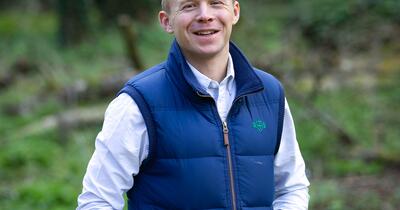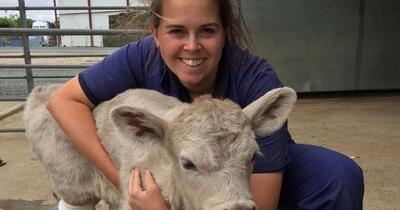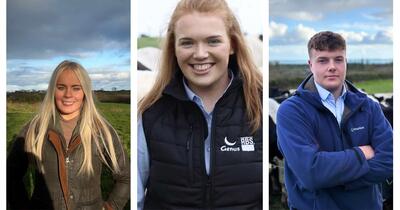
Grosvenor Farms Arable Manager Charlie Steer NSch 2019 has published his Nuffield Farming report titled ‘The Circular Farm’, sponsored by the NFU Mutual Charitable Trust.
Charlie travelled to Canada, the USA, Ireland, Denmark and around the UK, as well as meeting virtually with experts in the Netherlands, Finland, Norway and Australia. He explored the scope of circular farming systems, focusing on how this could eliminate waste and losses as well as reduce inputs.
“The foundation of the Circular Economy is the belief that there is no such thing as waste – this is represented by the Three ‘R’s’ of Reduce, Reuse and Recycle,” said Charlie. “This concept could become a vital part of modern food production helping to transform our systems of farming and food production to eliminate waste, better circulate resources and regenerate the natural world.”
Charlie identified that soil is central to the transition to circular farming and suggested that any circular farming system should focus on building functioning and well-managed soil. He also explored some examples of innovative projects in Canada, the USA, Ireland, and Holland which are demonstrating methods of circular farming.
He encourages farmers to adopt a designed systems approach by thinking circular, embracing complexity and diversity, and being open to opportunities and collaboration: “Knowledge exchange is an important part of building success for these multifaceted interconnected systems.”
Charlie also called for policy makers to emulate the Dutch policy of adopting a zero-waste strategy in conjunction with climate change adaption and mitigation. To achieve this, he suggests supporting the farming community in a holistic way to adopt Circular Farming through financial support and the removal of barriers to innovative solutions.
Charlie Yorke, Farming Propositions Manager at NFU Mutual, commented: “The NFU Mutual Trust is very proud have supported Charlie’s Nuffield Scholarship. Sharing knowledge is so important for our industry, and it’s great to see Charlie’s report has been published to help raise awareness and understanding of circular farming.”
The report is now available on the Nuffield Farming website at www.nuffieldscholar.org/reports or can be downloaded directly at https://bit.ly/3HtmAvQ.
Charlie first presented his findings during the 2020 Nuffield Farming Virtual Mini-Conference Series, and then again in person at the 2021 Nuffield Farming Conference in Towcester.
Study Objectives
- To explore the feasibility of a circular farming system and how this aligns with the wider circular economy.
- To eliminate waste and losses from the farming system.
- To reduce or remove inputs to the farming system through innovation in improved nutrient cycling and energy generation.
Messages
- The development of the Circular Economy and the Circular Farm present agriculture with a winning solution to help address the overshooting of planetary boundaries.
- Climate change and the impact of nitrogen and phosphorous use require significant and swift action, within the backdrop of feeding a growing population. The principles of the circular economy - designing out waste and pollution, keeping products and materials in use and regenerating natural systems in an agricultural landscape - creates a framework for farmers to adopt circular systems.
- The carbon footprint of food production is firmly on the map. Renewable energy only offers half the solution. The remainder must come from adopting a system-thinking approach to take into consideration the whole ‘foodscape’. The circular economy can link the consumer, supplier, and farmer together in a self- supporting network.
- We must now embrace complexity; zoom out from individual products we produce and look at how the entire system works. Careful management of the interrelationships between each part will enable farms to become a foundation for future prosperity and sustainability.



